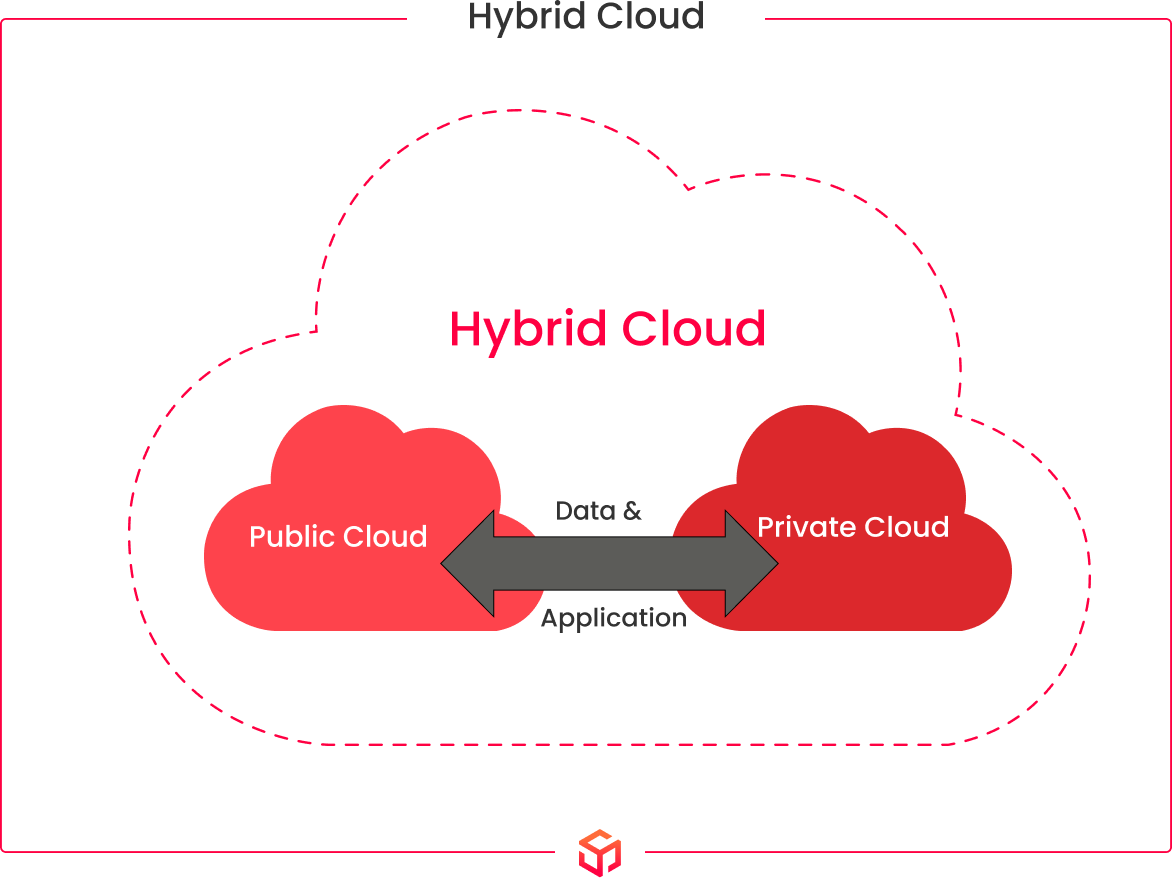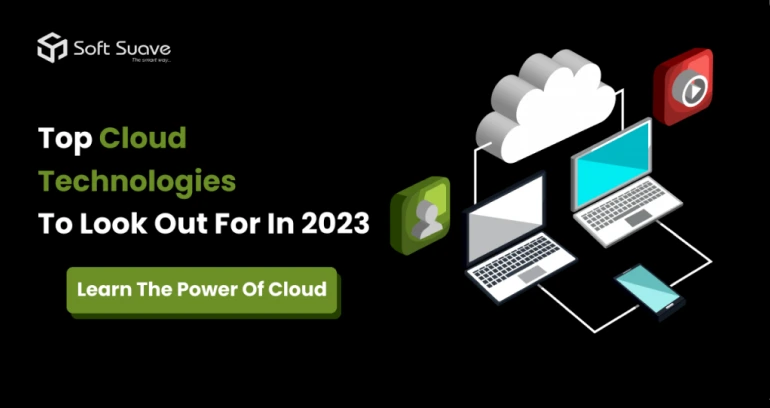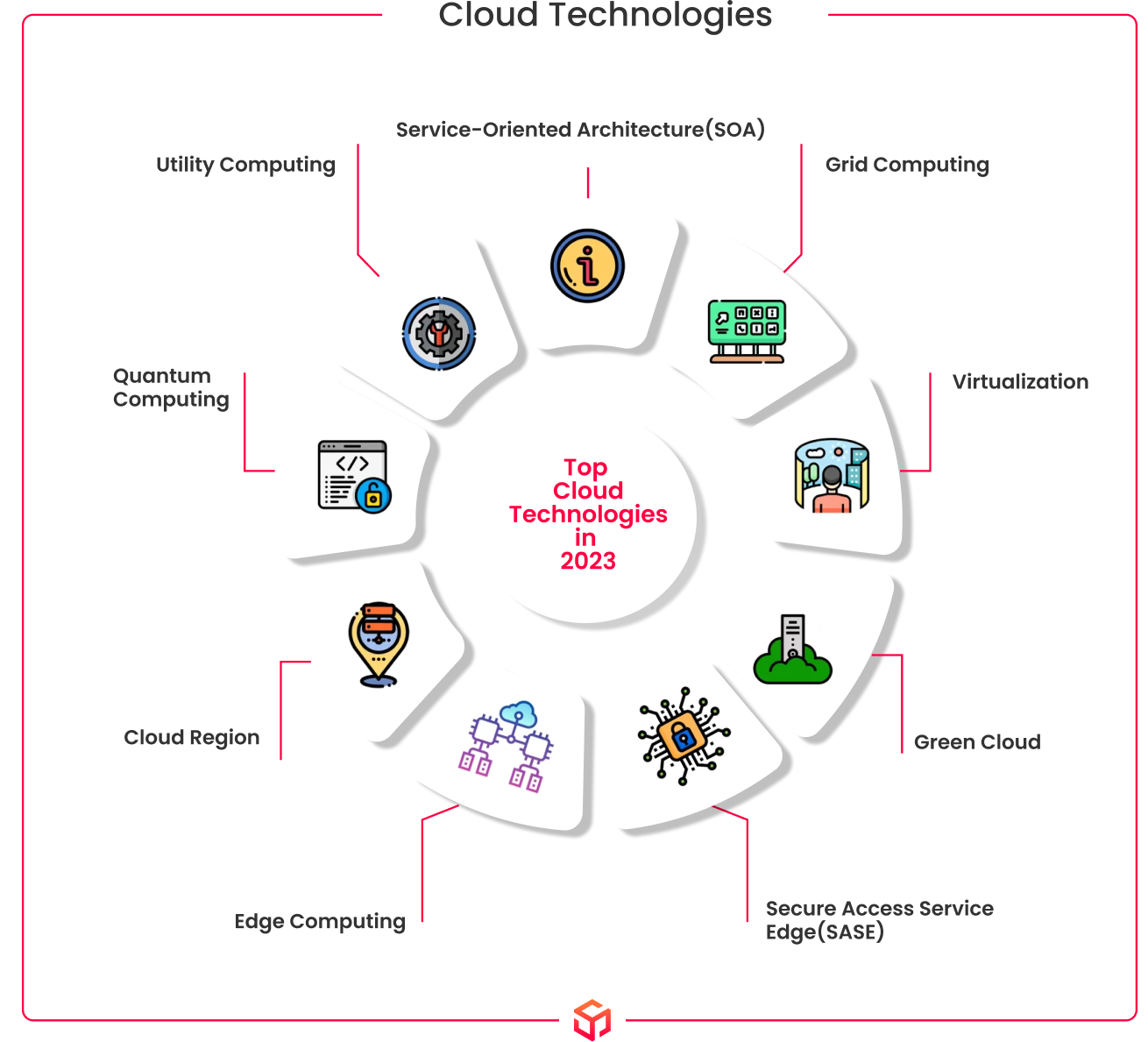Introduction:
Cloud applications have become an essential component of many businesses, providing scalable, flexible, and cost-effective cloud computing services and resources. As the demand for cloud technology continues to grow, new and innovative solutions are emerging to address the evolving needs of businesses.
Here are some of the top cloud technologies to keep an eye on in 2023. So you can get an idea of how to develop a cloud application more clearly. Let’s dig in.
Serverless Computing:
Serverless computing is a cloud computing model where the cloud provider manages the infrastructure and automatically allocates resources as needed. In app development, this means that developers can write and deploy code without worrying about the underlying infrastructure. Serverless computing offers several benefits for app development, including improved scalability, reduced operational costs, and faster time-to-market. In addition, it enables developers to focus on writing code rather than managing infrastructure, which can improve productivity and reduce errors.
Serverless computing is a cloud computing model that leverages cloud technologies where the cloud provider manages the infrastructure and automatically allocates resources as needed. In app development, this means that developers can write and deploy code without worrying about the underlying infrastructure. Serverless computing offers several benefits for app development, including improved scalability, reduced operational costs, and faster time-to-market. In addition, it enables developers to focus on writing code rather than managing infrastructure, which can improve productivity and reduce errors.
Edge Computing:
Edge computing is a distributed computing model where data processing and storage performed closer to the edge of the network, rather than in a centralized data center. This model is useful for applications that require low latency, such as real-time analytics, IoT devices, and autonomous vehicles.
Edge computing can help reduce network congestion and improve the overall performance of applications. It can also improve data security by keeping sensitive data closer to the source and reducing the need to transfer data over the network.
Looking to Cloud Application Development? Contact Soft Suave.
AI in the Cloud:
AI in the cloud refers to the use of cloud computing resources to develop, train, and deploy artificial intelligence (AI) models. Cloud-based AI platforms provide developers with access to powerful hardware and software tools, as well as pre-built AI models customized for specific use cases.
AI in the cloud can help businesses automate processes, gain insights from data, and improve decision-making. It can also enable the development of new products and services that leverage AI technology.
Cloud-Native Applications:
Cloud-native applications are designed specifically to run on cloud infrastructure. We built them using a set of principles and practices that leverage the scalability, resilience, and flexibility of the cloud.
Cloud-native applications are typically built using containers, microservices, and orchestration tools such as Kubernetes. They are highly scalable, updated frequently, and can be deployed across multiple environments, including public and private clouds.
Hybrid Cloud:
A hybrid cloud is a computing environment that combines on-premises infrastructure with one or more public cloud providers. This model allows businesses to take advantage of the scalability and flexibility of the cloud while maintaining control over their sensitive data.

Multi-Cloud Management:
Multi-cloud management refers to the ability to manage and deploy applications across multiple cloud environments, including public clouds, private clouds, and hybrid clouds. The increasing adoption of multi-cloud strategies requires software development companies to have an in-depth understanding of how to develop a cloud application, as well as the need for effective management and orchestration tools.
Multi-cloud management platforms provide businesses with a centralized view of their cloud resources, enabling them to optimize costs, improve security, and streamline operations.
Quantum Computing:
Quantum computing is a new computing paradigm that leverages the principles of quantum mechanics to perform computations. Quantum computers can solve certain problems much faster than classical computers, making them well-suited for applications such as cryptography, optimization, and simulation.
While still in its infancy, quantum computing has the potential to revolutionize many industries, including finance, healthcare, and logistics. Cloud providers are already offering quantum computing services, making this technology more accessible to businesses of all sizes.
Cloud Security:
Cloud security remains a top concern for businesses as they continue to adopt cloud technology. With the increasing frequency and sophistication of cyber threats, it’s essential to have robust security measures in place to protect data and applications.
Cloud providers are investing heavily in security, offering a range of tools and services to help businesses secure their cloud environments. These include identity and access management, encryption, threat detection and response, and compliance monitoring.
conclusion:
Finally, cloud technology is rapidly developing, with new and innovative solutions emerging to address the growing needs of businesses. From serverless computing to quantum computing, these technologies offer significant benefits, including improved scalability, reduced costs, and faster time-to-market and you may get a precise idea of how to develop a cloud application with a better understanding. As businesses continue to adopt cloud technology, it’s essential to stay up-to-date with the latest trends and best practices to ensure success in the cloud. Soft Suave, one of the leading cloud computing companies, is at the forefront of this evolution and is helping businesses leverage the power of cloud technology to drive growth and innovation.
Are you looking for top-notch cloud computing services?
Our team of experienced developers can help you build high-quality cloud solutions that meet your business needs.
Frequently Asked Questions (FAQ)
Serverless computing is a cloud computing model where the cloud provider manages the infrastructure and automatically allocates resources as needed.
Edge computing is a distributed computing model where data processing and storage performed closer to the edge of the network, rather than in a centralized data center.
A hybrid cloud is a computing environment that combines on-premises infrastructure with one or more public cloud providers.
The adept Project Manager at Soft Suave Technologies. With a strategic mindset and commitment to excellence, Madhu ensures successful project delivery. His leadership blends innovation with established methodologies, fostering a culture of continuous improvement. Connect with Madhu to explore how Soft Suave’s projects thrive under his expert guidance.



